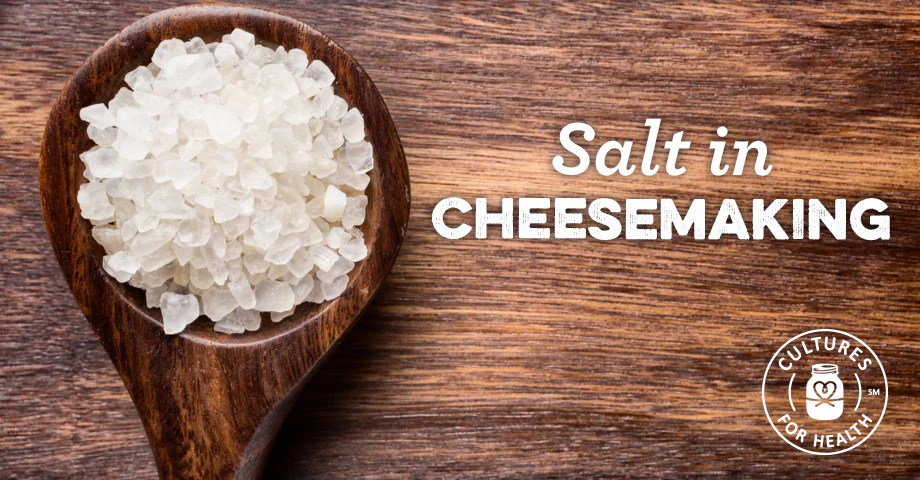
Salt is called for in most cheese recipes, sometimes listed as cheese salt. What exactly is cheese salt? What other kinds of salt can be substituted in cheese recipes?
WHAT IS CHEESE SALT?
Cheese salt is merely a salt that is non-iodized. Iodized salt harms and inhibits bacterial growth and well-being that is essential to any good cheesemaking. Iodized salt can also slow the aging process drastically. Sometimes cheese salt comes in flakes rather than in grains, because flakes are more easily dissolved and absorbed.
WHAT KIND OF SALT CAN I USE IN CHEESEMAKING?
Will any non-iodized salt work in cheesemaking? Sure! But you will probably do better using a quality sea salt, rather than just non-iodized table salt, because it will be unbleached and will add fewer chemicals to the cheese.
WHY DO I NEED SALT?
Salt is not used merely for flavor enhancement during the cheesemaking process. Salt is a natural preservative and helps to prepare cheese for aging. Salt is important in a number of cheesemaking steps: it adds to the flavor of the cheese, it helps to dry the curds during draining by controlling moisture and causing the curds to shrink, it is essential in the development of a good rind, and will help to kill bacteria and other harmful growth when used as a brine.
Using Salt in Soft Cheeses
When adding salt to soft cheese, a good rule of thumb is 1 teaspoon salt per half pound of soft cheese. For more information on making and salting soft cheeses, consult our article Introduction to Soft Cheeses.
Using Salt for Hard Cheeses
For brining hard cheese, keep in mind that a coarser salt will require extra care when making brines, because it dissolves more slowly. It is essential that as much salt as possible is dissolved in water when preparing brine, because this determines the final taste and overall outcome of the cheese. Some salt in fully saturated brine will remain undissolved. Learn more about different saturation levels of brine in our article, Brining Hard Cheeses.
Dry salt rubs can be done very simply, by just sprinkling the needed amount of salt on the cheese wheel and rubbing it gently over the entire surface of the cheese.
















